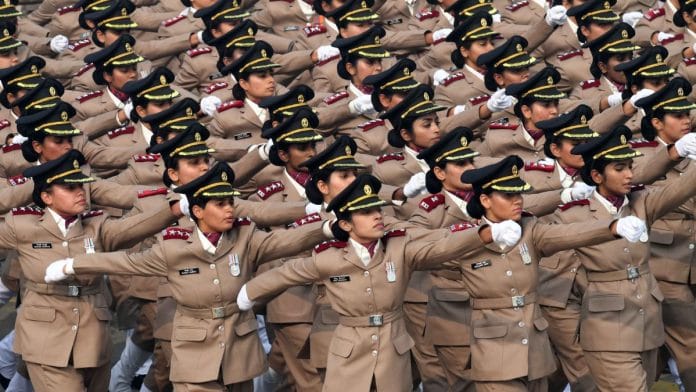New Delhi: The Supreme Court has affirmed the right of Short Service Commission (SSC) officers from the Military Nursing Service (MNS) to be acknowledged as ex-servicemen for the purpose of re-employment benefits such as reservation in government jobs, central public sector enterprises (PSUs) and nationalised banks, thus resolving a long-standing ambiguity in policy that had affected numerous former officers.
A bench comprising Justices P.S. Narasimha and Manoj Misra dismissed a Special Leave Petition (SLP) challenging a 2023 judgment by the Punjab and Haryana High Court.
The high court had directed the Punjab government to appoint Captain Gurpreet Kaur, an MNS officer who had qualified for the Punjab Civil Services (PCS) with notional seniority.
Captain Kaur of the MNS had passed the examination for the Punjab Civil Services in 2021 but her candidature was rejected on the ground that she was not an ex-serviceman. Aggrieved, she had approached the high court in May 2022.
In its judgment, authored by then acting Chief Justice Ritu Bahri and Justice Aman Chaudhary, the high court observed that MNS constitutes an “Armed Force of the Union” and that the Punjab Ex-Servicemen (ESM) Rules explicitly include Short Service Commissioned officers released with gratuity. The court further ruled that the state’s statutory provisions could not be overridden by central guidelines, including a 2019 letter from the Kendriya Sainik Board, which had denied ex-servicemen status to MNS personnel.
Before 2019, MNS officers were granted ex-servicemen recognition by the central government. However, a circular issued by Kendriya Sainik Board that year introduced uncertainty by declaring that MNS personnel were ineligible for such benefits. This led to confusion among state recruitment bodies and triggered extended legal challenges for many affected officers.
Subsequently, Irwan Kour, a former officer of the Army Medical Corps and a serving PCS officer, contested the high court verdict before the Supreme Court in December 2024. Kour contended that Captain Gurpreet Kaur’s appointment might compromise her own standing within the service and argued that MNS personnel should not be categorised as ex-servicemen.
Reaffirming the crucial role of MNS officers within the Armed Forces and their entitlement to post-retirement benefits equivalent to those of other military personnel, the apex court dismissed this argument.
Sources within the defence and security establishment informed ThePrint that exclusion of MNS officers from ex-servicemen benefits had long been criticised as discriminatory in nature.
“The convoluted interpretation of rules was both exploitative and demoralising,” one source said. “It actively discouraged capable women from joining the military.”
They added that the policy had particularly adverse effects, as many officers found themselves unemployed after only five to ten years of service, without eligibility for age relaxation or reservation in civil appointments—privileges available to other ex-servicemen.
In its judgment, the bench stressed the importance of uniform resettlement policies for veterans and noted that the morale of serving personnel hinges on the assurance of clear and equitable post-retirement benefits.
Although Punjab accounts for just 2.3 percent of India’s population, the bench noted that the state contributes 7.7 percent to the Army’s strength, suggesting that challenges faced by veterans could have broader implications for military recruitment and retention.
“Effective resettlement of ex-servicemen is necessary to sustain the morale of serving members of the defence forces,” the bench remarked. “If veterans are neglected, young talent may feel dissuaded from joining the armed forces.”
Earlier in 2024, a group of retired officers from the MNS—the only all-women branch of the Armed Forces—held a press conference in New Delhi, appealing to the President and Prime Minister to grant them recognition as ex-servicemen.
They highlighted the persistent hardships faced by short-service officers who, despite their years of dedicated service, were routinely denied age relaxations and employment reservations generally accorded to other veterans. The officers described the exclusion as unjust and warned that such inequity could undermine recruitment efforts by discouraging competent women from military careers.
Beyond re-employment, ex-servicemen and their dependents also receive perks that cover financial assistance, and healthcare and education-related benefits.
The Supreme Court’s ruling is seen as a long-overdue affirmation of their contributions and a resolution to a drawn-out and disheartening policy vacuum.
(Edited by Radifah Kabir)
Also Read: ‘Star Wars tech’: DRDO showcases 30 KW laser-based weapon to take down helicopters, swarm drones






